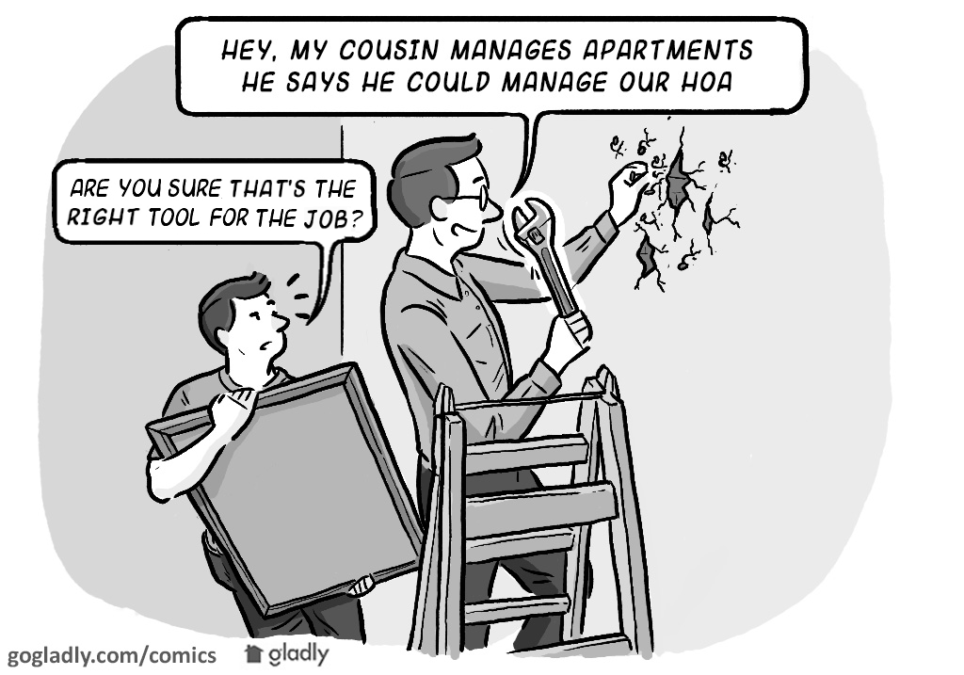Community management is a tough job and community managers take pride in their work. Just try calling a community manager a “property manager”. You’ll probably get a strange look or even a stern correction. After all, those in the community association industry know there’s a big difference.
Don’t get me wrong, property managers are great, and most of them do a good job managing apartments and commercial buildings. But, using property management methods to manage HOAs and condos will result in a poorly managed community.
What is the difference
While there are some similarities on the surface, the differences run throughout every aspect of community management. Here are a few of the differences.
- Governing Documents — Apartment and commercial management is usually governed by rules established by the manager or property owner. In a community association, CC&Rs and bylaws give each community a unique set of rules and procedures that must be understood and followed. These governing documents make managing more complicated, especially for portfolio managers.
- Who’s Calling the Shots? — Every type of property management requires a person or entity that makes the important decisions. For apartments, it’s usually the building owner. HOA’s, on the other hand, have a board of directors elected from among the membership. This board consists of several individuals with differing opinions, backgrounds, and personalities. To make things more complicated these members change on a regular basis. This means that important decisions take more time to come about and policies can change with the turnover of board members.
- State Laws — Each state has unique laws that govern HOAs, and different but similar laws for condos. Not to mention the laws governing non-profit corporations. A knowledgeable community manager knows when to bring in legal counsel to help the board navigate these laws.
- Residents are Owners — One of the key differences are the people. HOA and condo residents are often the homeowners. This means they are more interested in the association’s success and how things are managed. This is a good thing, but it also can lend itself to heated confrontations when ideas and expectations don’t align.
- Financial Management — Because of the reasons mentioned above, HOAs must follow financial and accounting practices that other property managers do not. These differences are found in the way funds are deposited, collections, who signs the check, and how large replacement expenses are paid for.
So next time you refer to your community manager as a “property manager”, don’t be offended by the look of disgust that will inevitably follow. It’s not that she thinks the position of community manger is high and mighty, and no, she doesn’t hate property managers. It’s just that she knows what it takes to manage a community and she’s seen what happens when a community is not managed properly.
- Liar, Liar, Pants on Fire! Handling Misinformation in Your HOA - March 13, 2019
- Setting the Ground Rules for Neighbor Disputes - June 27, 2018
- HOA Board Responsibilities – It’s Not as Difficult as You’re Making It. - April 23, 2018



 Help
Help
Fantastic – the honest truth exposed – this article will be widely circulated THANK YOU VERY MUCH! Well done Burke and timely too — most HOAs in WV Panhandle have annual meetings in the fall and they just don’t see the difference – couldn’t have been published sooner! Kudos my friend!
Thanks, Nance
It’s a constant battle to educate homeowners 😉